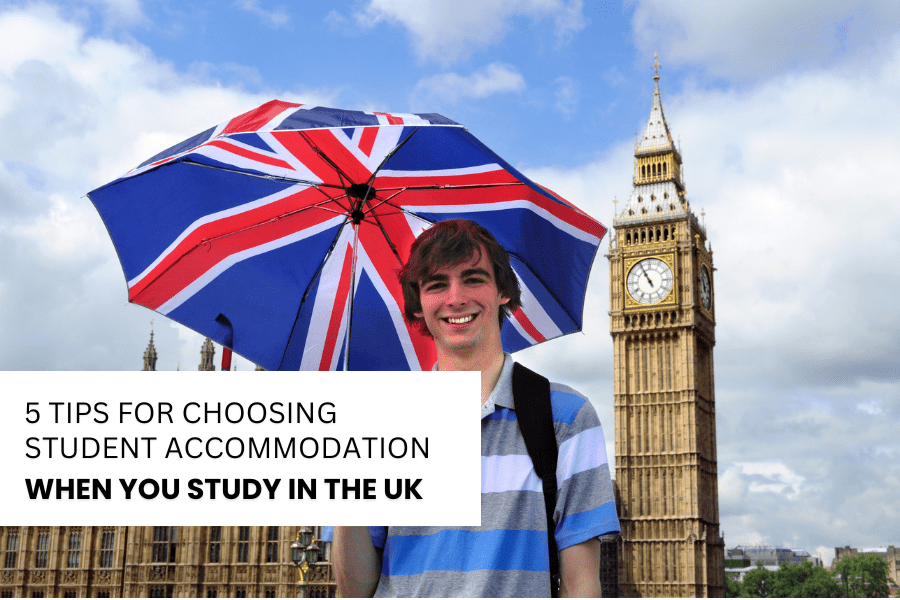
Book Early:
Upon receiving your offer, initiate your search for student accommodation in the UK promptly. It falls upon you to secure suitable lodging for yourself. Should you opt not to apply for university-owned accommodation, your university will presume that you have arranged or will arrange private accommodation.
Commencing your search early offers a wider array of options, both in university housing and the private rental sector. This is particularly crucial in areas where demand exceeds supply. While securing private accommodation just before the academic year’s commencement remains feasible in most cases, note that choices diminish. Thus, early booking is advisable whenever possible. Doing so not only ensures better deals but also increases the likelihood of finding accommodations that meet all your requirements, especially if you are searching with others.
The different types of accommodation:In general, student accommodation options fall into three main categories:
On-campus accommodation:
Opting for on-campus accommodation provides an opportunity to easily connect with fellow students and reside in close proximity to university facilities. While offering less flexibility in room selection, it remains a favored choice among first-year students. Typically, on-campus accommodation is reserved for one academic year.
Private residences:
Private residences afford greater flexibility in terms of dates and allow for customization of location and room type. These accommodations are not exclusive to students, potentially leading to a mix of student and professional residents within the building.
Purpose-built student accommodation (PBSA):
PBSAs consist of expansive apartment complexes specifically designed for student living. They are renowned for their extensive amenities, such as on-site gyms, game rooms, and dedicated study spaces, alongside more conventional common areas. PBSAs offer considerable flexibility in room selection and rental duration.
Check your Budget:
Before embarking on your search for accommodation, establishing your budget is paramount. Determine how much you can comfortably afford or are willing to allocate per month for rent. Your budget will heavily influence the type of accommodation you ultimately choose. Sharing accommodations with others typically proves to be the most economical option. However, if privacy is a priority and you can afford a higher rent, a studio apartment may be the preferred choice.
Additionally, bear in mind that many rental agreements, particularly in the private sector, require a deposit equivalent to one month’s rent before you move in. Therefore, it’s essential to account for this expense when planning your budget.
Location is an important factor:
When searching for student accommodation, the location holds significant importance. Your new residence will serve as your central hub, so it’s crucial to carefully consider where you want it to be and assess your transportation options. Considerations include proximity to your campus, ease of exploration in your new surroundings during leisure time, accessibility to the town center or other points of interest, and the convenience of public transportation, such as bus stops, metro or train stations. Additionally, evaluate whether walking or cycling to university is a feasible option from your prospective residence.
Understand your contract well:
Before finalizing any contract, it’s essential to fully understand your rights and responsibilities. Clarify whether a deposit is required before occupancy and the specified amount. Determine if a guarantor is necessary to guarantee rent payment in case of inability to do so yourself. Familiarize yourself with the cancellation policy in case of unforeseen circumstances, such as university acceptance issues, visa denials, or newly imposed travel restrictions. While these scenarios may appear improbable, it’s prudent to be prepared and aware of the necessary steps to take should any unexpected events occur.
Final Thoughts:
So to sum it all up when selecting student accommodation in the UK, it’s crucial to consider five key factors. Firstly, determine your budget and assess affordability, keeping in mind additional expenses like deposits. Secondly, prioritize location based on proximity to campus, ease of exploration, and access to public transport. Thirdly, understand the terms of the rental agreement, including deposit requirements, guarantor needs, and cancellation policies. Fourthly, consider the type of accommodation, whether it’s on-campus, private residence, or purpose-built student accommodation (PBSA), each with its own benefits and drawbacks. Lastly, evaluate the facilities and amenities offered, such as common areas, study spaces, and recreational facilities, to ensure they align with your preferences and lifestyle. By carefully considering these factors, you can make an informed decision and select student accommodation that meets your needs and enhances your university experience in the UK.
Source link
All Materials on this website/blog are only for Learning & Educational purposes. It is strictly recommended to buy the products from the original owner/publisher of these products. Our intention is not to infringe any copyright policy. If you are the copyright holder of any of the content uploaded on this site and don’t want it to be here. Instead of taking any other action, please contact us. Your complaint would be honored, and the highlighted content will be removed instantly.

